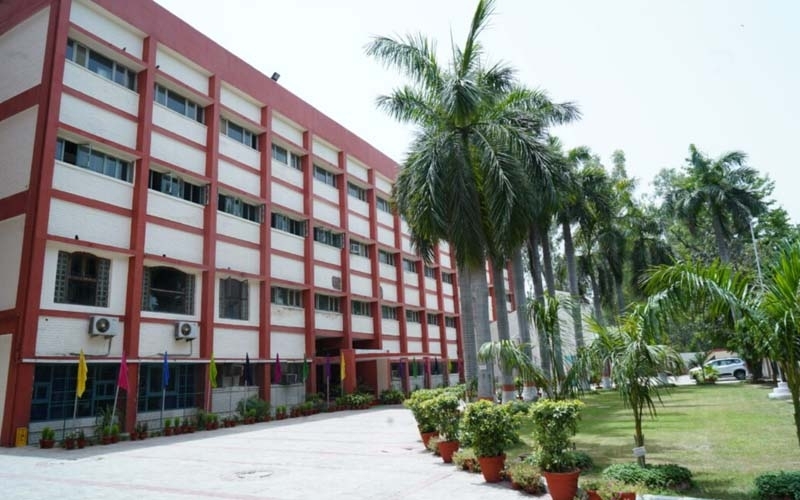Over 500 delegates from 60 countries to visit Pusa Campus to see phenomics, genomics and gene bank facilities

Technical sessions of ‘First Global Symposium on Farmers’ Rights’ concludes
Shri Ram Shaw
New Delhi: The technical sessions of ‘First Global Symposium on Farmers’ Rights (GSFR)’ held at the ICAR Convention Centre, National Agricultural Science Centre, New Delhi has been successfully concluded. Today, delegates will visit the Pusa Campus (IARI and NBPGR) to see the phenomics, genomics and gene bank facilities.
The GSFR was attended by more than 500 delegates from 60 countries, including the National Focal Points of the International Treaty, more than 150 farmers and more than 100 foreign participants. Various issues pertaining to Farmers’ Rights as set out in the Article 9 of the International Treaty were deliberated in five different technical sessions, two panel discussions and three special sessions. A special session on Farmers Forum was an important inclusion in the GSFR.
Read More: Keeping ‘Indoor plant pots’ in office’ rooms to enhance oxygen level of the environment
The deliberations and suggestions emanating from the GSFR have been crystalized in a ‘Delhi Framework on Farmers’ Rights’, as a proposal from India to the Treaty:
Accelerate efforts to implement multiple options as advocated by the Treaty for realization of farmers’ rights. For this, Treaty Secretariat to create a handholding and capacity development mechanism.
Establish an institutional mechanism that is responsible for creation of awareness about the Farmers’ Rights, capacity building of custodian farmers and farmers’ seed systems, and facilitating equitable benefit sharing, and request Treaty Secretariat to coordinate such initiatives.
Read More: Special Campaign 3.0 for promoting Environment, Forest, Climate Swachhata from 2nd Oct
Advocate creation of functional synergy across different UN instruments (ITPGRFA, CBD, UNDROP, UNDRIP, etc.) to facilitate the realization of farmers’ rights.
Strengthen the Benefit Sharing Fund for supporting farmers and farmers’ seed systems to ensure conservation and sustainable use of PGRFA; and for the realization of farmers’ rights through enabling environment by national governments, international organizations and incentivize participation of private sector in supporting conservation activities.
Read More: Vertical Farming For Urban Beautification And Nutrition
Create conducive condition for active participation of different stakeholders and building farmer-centric partnership opportunities including South-South, triangular and regional cooperation to accelerate implementation of Farmers’ Rights.
A special package be packaged as part of climate change adaptation and mitigation funds to directly support on-farm conservation and custodian farmers, who are the most affected by extreme climatic events.
Establish/support farmer-managed seed system for traditional varieties and create self-sustaining production and marketing value chain, to enhance farm income of custodian farmers and strengthening of local food systems.
Join hands to systematically document traditional knowledge associated with PGRFA, adhering to prior informed consent and respecting the sensibilities of communities. Treaty Secretariat to facilitate the process under ongoing documentation programmes.
Application of new science and technologies aimed at conservation and sustainable use of PGRFA, taking necessary precautions to avoid negative impact on farmers’ rights and ensuring enhanced benefit sharing opportunities.
Create legal and formal provisions in their existing system that recognize and protect farmers’ rights as envisaged in the Plant Treaty.
The meeting was inaugurated by President Smt. Droupadi Murmu. Recognizing the farming fraternity as the true guardian of crop diversity, President Droupadi Murmu, said that India’s law on Farmers Rights (enshrined within the Protection of Plant Varieties and Farmers’ Rights (PPVFR) Act, 2001) can be a model for the world to emulate, especially in the context of climate change challenges. The President also conferred 26 Plant Genome Saviors Awards/Recognition to farmers and farming communities of India. Also, the newly constructed ‘Plant Authority Bhawan’, the office of the PPVFR Authority, and an online plant variety ‘Registration Portal’ was inaugurated by the President, in the august presence of Union Minister of Agriculture and Farmers’ Welfare, Narendra Singh Tomar, and Minister of State for Agriculture and Farmers’ Welfare, Kailash Choudhary.
Organized by the Secretariat of the International Treaty on Plant Genetic Resources for Food and Agriculture (International Treaty) of the Food and Agriculture Organization (FAO), Rome, the Global Symposium is being hosted by Ministry of Agriculture and Farmers’ Welfare in collaboration with PPVFR Authority, Indian Council of Agricultural Research (ICAR), ICAR-Indian Agricultural Research Institute (IARI), and ICAR-National Bureau of Plant Genetic Resources (NBPGR).An exhibition showcasing the rich agrobiodiversity of India was put through support from 80 organisations and awardees farmers/farming community, ICAR institutes, SAUs, CAUs, CGIAR institutes and seed association. The Global Symposium was requested by the Ninth Session of Governing Body of the FAO’s International Treaty, held in New Delhi during September 17 to 24, 2022, to share experiences and to discuss possible future work on Farmers’ Rights.


